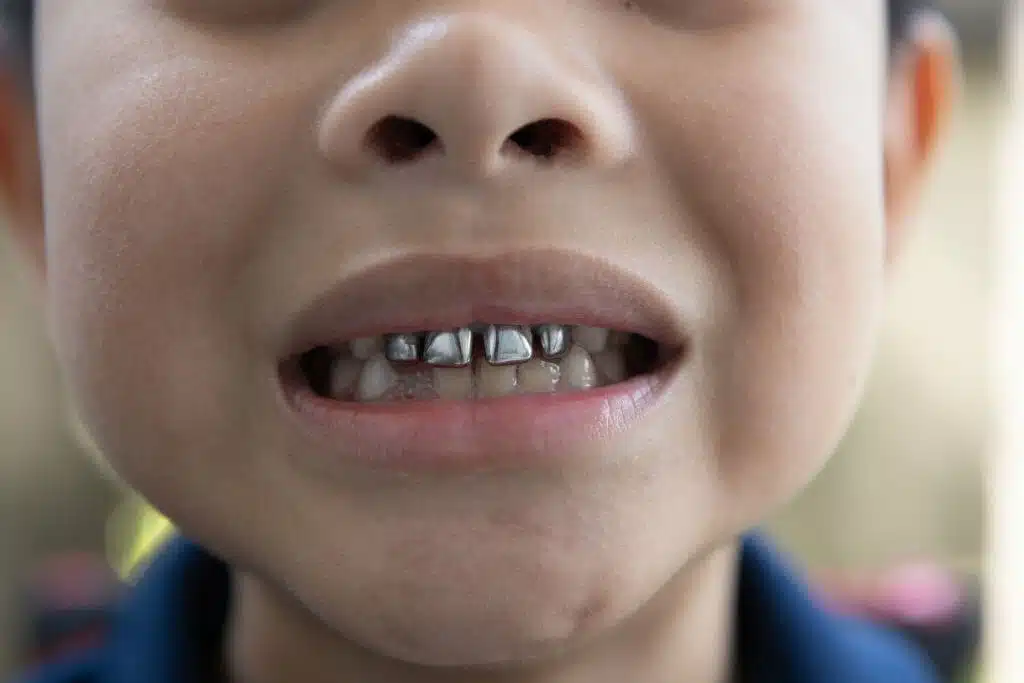Dental crowns are a standard solution for restoring damaged or weakened teeth. They act as a protective cap, covering the tooth to improve function, strength, and appearance. Here is some information about what dental crowns are, their purpose, the materials used, and when you could benefit from getting dental crowns.
Understanding Dental Crowns
A dental crown is a tooth-shaped cap placed over a damaged or weakened tooth to restore its functionality and appearance. Crowns are used when tooth decay, fractures, or large fillings compromise a tooth’s structure. They also help protect teeth after root canal treatments and improve the look of discolored or misshapen teeth. By covering the entire visible portion of a tooth, a crown enhances its form and durability.
Exploring CEREC One-Day Crowns
Traditional crowns involve a multi-step process that usually spans multiple dental visits. During the first appointment, the dentist prepares the tooth, takes impressions, and sends them to a dental laboratory. A temporary crown is placed in the meantime. At a later visit, the custom-fit permanent crown is cemented onto the prepared tooth.
CEREC one-day crowns streamline the process. Using advanced computer-aided design (CAD) and manufacturing (CAM) technology, dentists can create and place crowns in just one appointment. This eliminates the need for temporary crowns. It also removes the need for additional visits, offering a same-day solution that saves time.
Understanding How Long Dental Crowns Last
The longevity of dental caps depends on several factors, including the material used, the health of the underlying tooth, and proper oral hygiene. On average, traditional crowns last between 5 to 15 years, while some may last longer with proper care. CEREC one-day crowns, made of durable ceramic, provide similar longevity. Regular dental checkups, good oral hygiene practices, and avoiding habits like teeth grinding or biting hard objects contribute to the lifespan of crowns.
Taking Care of Dental Crowns
Proper care is key for maintaining the function, durability, and appearance of dental caps. Brush your teeth at least twice a day with a soft-bristled toothbrush. Use a non-abrasive fluoride toothpaste to avoid damaging the crown’s surface. Floss daily to remove plaque and food particles around the crown and nearby teeth. This helps keep your gums and surrounding teeth healthy.
A balanced, healthy diet also plays a role in maintaining a crown. Limit sugary and acidic foods and drinks, as they can contribute to decay or weaken the bonding material around the crown. Avoid chewing on hard objects like ice, pens, or fingernails, which can put unnecessary pressure on your crown and potentially cause cracks or chips.
If you experience any discomfort, notice changes in the crown’s fit, or observe damage such as cracks or chips, consult your dentist promptly. Early evaluation and necessary adjustments can prevent further complications. They can also prolong the lifespan of your crown. Regular dental checkups are valuable for monitoring the condition of your crown. They also help maintain your overall oral health. With proper care and attention, your crown can last for many years. It will maintain both its function and aesthetic appeal.
Choosing the Right Option for Your Dental Health
Dental caps serve as an effective solution for restoring teeth and maintaining oral health. Whether you opt for traditional crowns or the convenience of CEREC one-day crowns, your choice depends on factors such as time, budget, and personal preferences. Discussing your oral health needs with a dentist can help you make the most suitable decision for your situation.
- mylovelyfurryfriend discover expert tips on dog health
- Infectious Diseases Updates – Stay Informed, Stay Protected!
- Wegovy For Weight Loss – A Breakthrough in Managing Obesity!
- Emergency Medicine Forum – A Hub for Fast-Paced Knowledge, Support & Updates!
- Pediatrics Discussions – Insights, Challenges, and Expert Advice for Better Child Health!





Leave a Reply